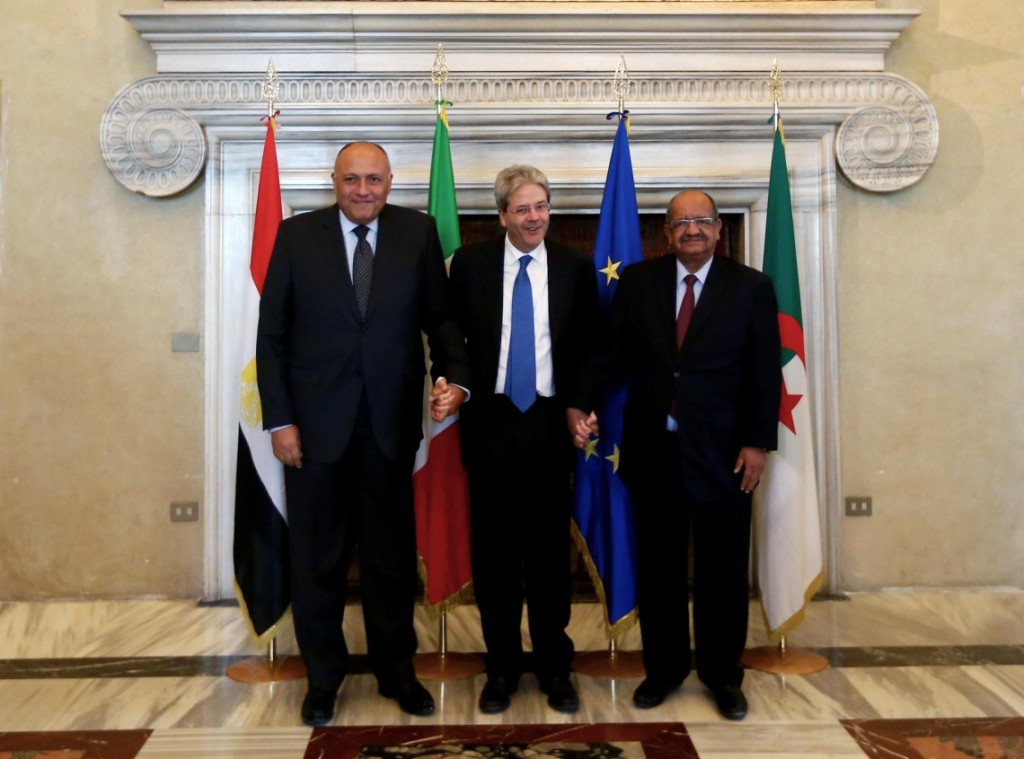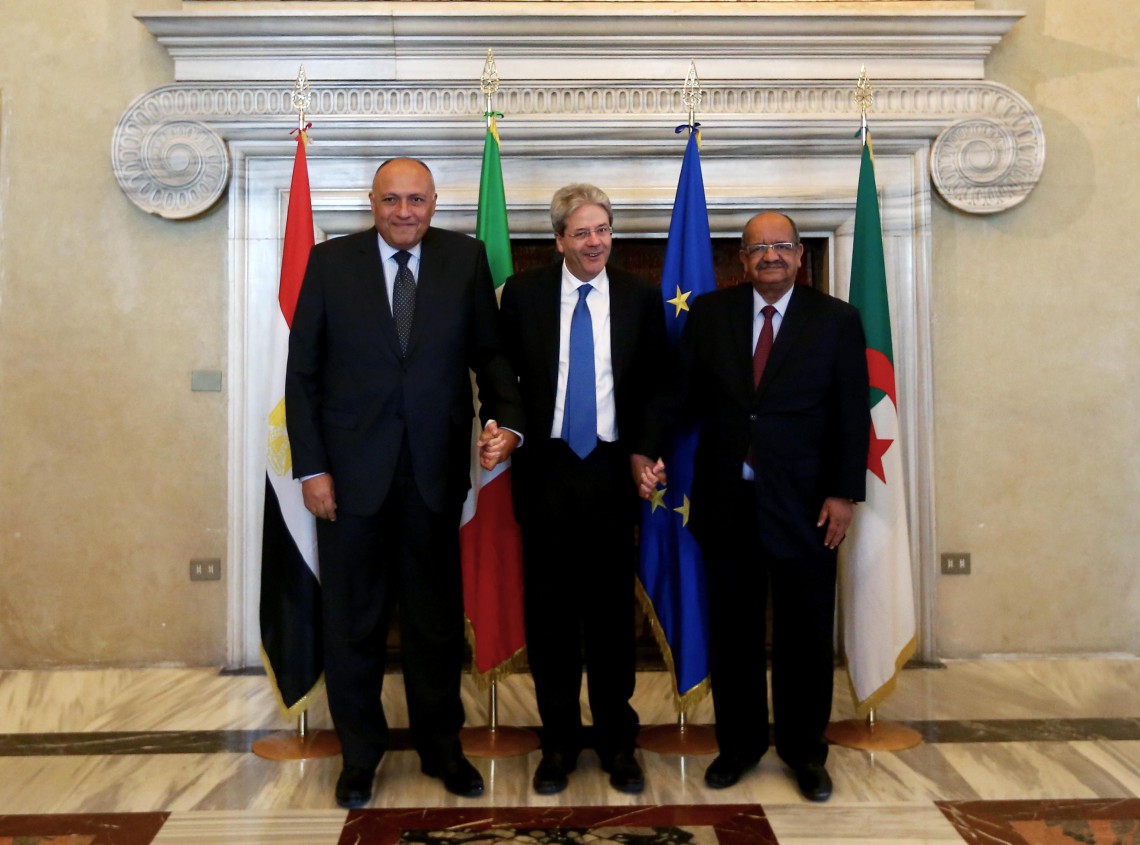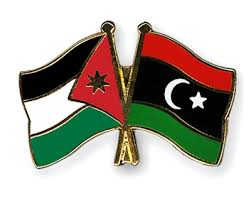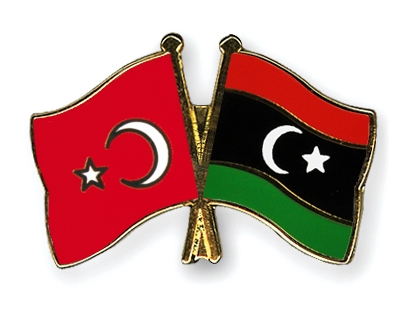By Libya Herald staff.

Tunis, 8 April 2015:
Italy, Egypt and Algeria have agreed to “intensify” joint efforts to fight the growth of . . .[restrict]terrorist forces in Libya and to pool information as part of the move.
The decision was taken at a meeting in Rome this afternoon of the three countries’ ministers dealing with Libya. They also agreed to continue backing the UN bid to create a Libyan national unity government.
“We have decided to intensify our efforts and our work together to promote the activities of UN envoy Bernardino Leon trying to stabilise the situation in Libya,” Italian Foreign Minister Paolo Gentiloni said at a press conference attended by his Egyptian counterpart, Sameh Shoukri, and Algeria’s Minister for Maghreb and African Affairs, Abdelkader Messahel.
Earlier Gentiloni met separately with the President of the Libyan House of Representatives, Ageela Saleh Gwaider, who had been invited to Rome by the Speaker of the Italian Chamber of Deputies, Laura Boldrini.
During their talks, Gentiloni reinforced Italy’s “strong support” for the UN-brokered dialogue saying that he hoped it would speed up.
“An inclusive approach and a government founded on a broad-based consensus are necessary to enable the international community to fully engage in the process of rebuilding and stabilising the country and combating terrorism”, Gentiloni told Gwaider.
For his part, Gwaider told the Italian Foreign Minister that he was committed a national unity government that included all Libyan forces that rejected terrorism.
At the later press conference, Gentiloni noted that a stable Libya with a “more inclusive” government would be “an opportunity for development and peace for our three countries [Italy, Egypt and Algeria].”
Algeria’s Messahel said that it made sense to coordinate policy and strategy on the terrorist threat from Libya, warning that the situation in Libya had to be brought under control otherwise it would impact on his own country’s security.
The Egyptian Foreign Minister also underlined the urgency of stabilising the situation in Libya, but also stressed that his country was committed to supporting the House of Representatives (HoR) in Tobruk as the legitimate authority in Libya. Cairo would, he said, happily accept a National Unity Government but it had to be one approved by the HoR. It also had to be one that genuinely represented the Libyan people and reflected the different “components of Libya”.
All three ministers said that they believed by coordinating on Libya, they would limit threats in their own countries from terrorists.
The three agreed to meet again in Cairo on a date to be announced.










